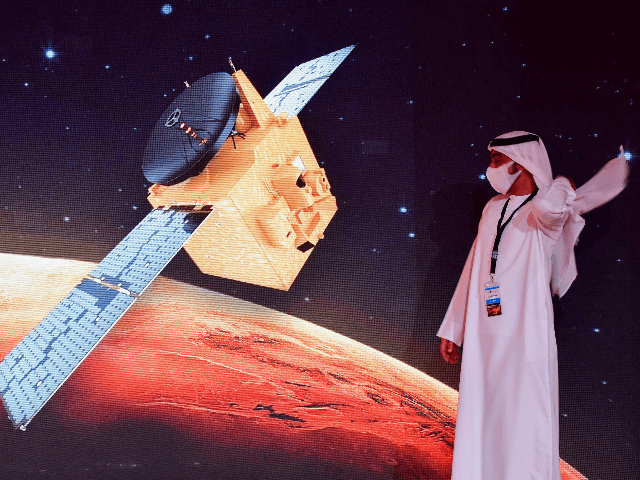The United Arab Emirates (UAE) successfully launched its first mission to Mars on Monday in what is the Arab world’s first-ever space exploration project.
The launch of the probe, named Hope, was hailed as a success by the leaders of Dubai and Abu Dhabi, the two most important city-states within the federation.
“We watched the successful launch of the Hope probe to Mars with pride and joy, as we embark on a new chapter in space, led by our exceptional youth,” Sheikh Mohammed bin Zayed, Crown Prince of Abu Dhabi and Deputy Supreme Commander of the Armed Forces, said on Monday. “Congratulations to the UAE for this historic achievement.”
“We have started the 493-million km journey to the Red Planet,” added Vice President and Ruler of Dubai, Sheikh Mohammed bin Rashid, confirming that everything went as planned. “May God facilitate our journey.”
Live footage of the launch showed the rocket carrying the probe taking off from the Tanegashima Space Centre in southern Japan at 06:58 am (16:58 pm ET).
The Emirati project is one of three missions currently heading to Mars, in addition to China’s Tianwen-1 and America’s Mars 2020. The timing of the missions has been coordinated to coincide with the period where Earth and Mars are nearest. According to NASA, the two planets will be 38.6 million miles away from each other by October, a comparatively short distance.
Unlike the other two missions, the Hope probe will not land directly on Mars, but instead orbit it for an entire Martian year, equivalent to 687 days. It is expected to reach Mars’s orbit by February 2021 to mark the 50th anniversary of the unification of the UAE, an alliance of seven emirates.
The UAE government has expressed hope that the mission will help inspire scientific advancement in neighboring countries, describing it as a “message of pride, hope, and peace to the Arab region, in which we renew the golden age of Arab and Islamic discoveries.”
The mission’s project manager, Omran Sharaf, claimed the probe will offer new insights into the planets, particularly with regard to weather dynamics in its atmosphere. He noted its launch is expected to be the beginning of a far larger objective of building a human settlement on Mars within the next 100 years.
“What is unique about this mission is that for the first time the scientific community around the world will have a holistic view of the Martian atmosphere at different times of the day at different seasons,” Sharaf said at a pre-launch briefing. “We have a strategy to contribute to the global effort in developing technologies and science work that will help one day if humanity decides to put a human on Mars.”
Follow Ben Kew on Facebook, Twitter at @ben_kew, or email him at bkew@breitbart.com.

COMMENTS
Please let us know if you're having issues with commenting.